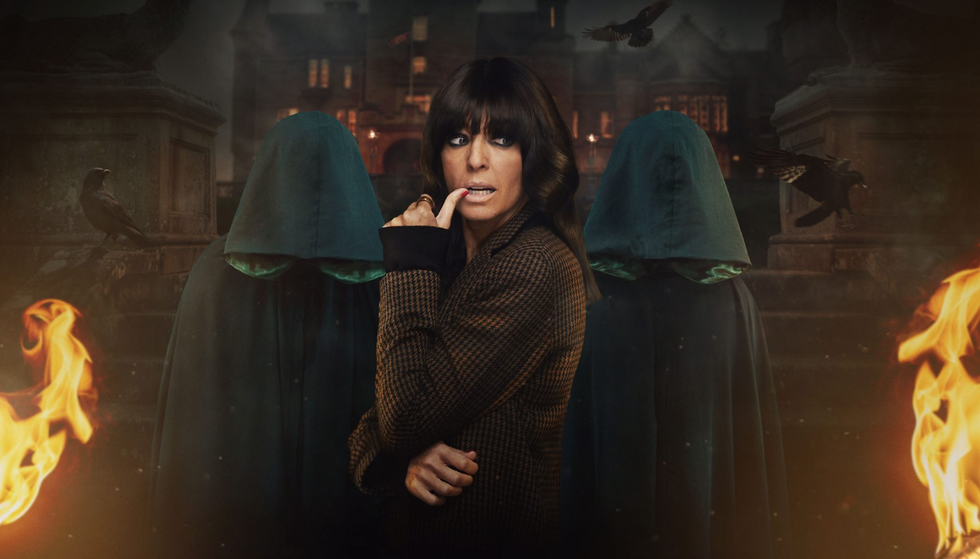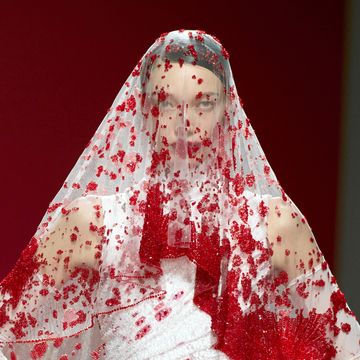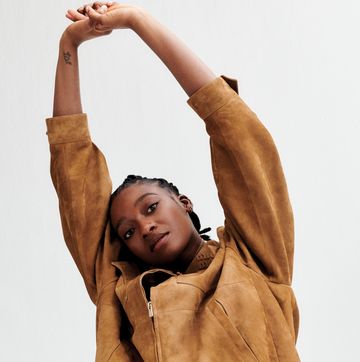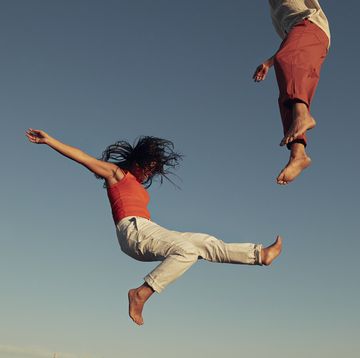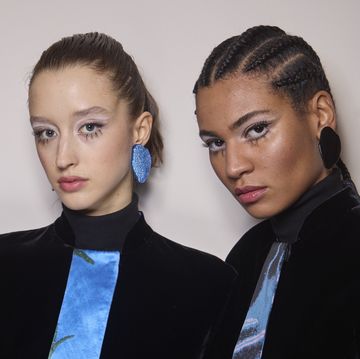Exactly a decade ago, alongside ‘Yolo’ and ‘adorbs’, the Oxford English Dictionary released a list of phrases it would be adding to its database. Among them was the term ‘hate-watch’, which it defined as the ‘activity of watching… for the sake of the enjoyment derived from mocking or criticising.’
Fast forward 10 years and our collective love of ‘hate-watching’ villains behaving badly on the small screen is stronger – and more cortisol-fuelled – than ever before. See BBC’s megahit reality game show The Traitors – which, now in its sophomoric season, has made villains of all the players who masquerade as murderous traitors – or the launch of Love Island: All Stars and the return of its band of ‘bad boys,’ for proof. Even in Hollywood, baddies are bringing home the bacon. Succession and Beef have both swept up gongs across the board during award season, with both series centring on problematic and treacherous male leads.
But gone are the villainous days of The X Factor, in which we would watch pitchy auditionees be sniggered at in front of a live audience and Simon Cowell. Today’s villains have enabled us to become arbiters of these characters and their perceived moral code. The power to reward – or, indeed, reprimand – them is in our hands: we vote to punish them by taking part in challenges, we vote for them to leave early, we vote for them to win. There is something subtly sadistic about watching the rise, but more than that, the fall of villains.
On-screen baddies have taken something of a cultural pulse in recent years. A study published last year by the University of California confirmed that as a society, we watch negative television to escape the stressors of our own lives. During a three-year period from 2020 to 2023 — which included both pandemic and non-pandemic months — researchers observed that most of the hundreds of people in their study had a persistent preference for negative media. The study’s lead investigator, Richard Huskey, noted in his research that when ‘people are in a bad mood’, they were found to ‘use media to amplify that mood.’
‘Watching characters who engage in manipulative or morally ambiguous behaviours sheds light on aspects of humanity that we don't often encounter in an obvious way. This exploration of the "other" is stimulating because it is so different from our everyday lives,’ Dr Elena Touroni, a consultant psychologist and co-founder of The Chelsea Psychology Clinic tells ELLE UK. ‘It's a chance to safely engage with - and understand - the darker aspects of human nature from a distance.’
A quick glance at the history books shows the provenance of the modern-day television villain. Big Brother’s ‘Nasty’ Nick Bateman, who appeared on the first season of the reality show, created the blueprint for the modern-day on-screen villain that we know (and love to hate) today. Producers painted him as the villain of the piece and the public responded by tuning in in their droves. And so began the longstanding symbiotic relationship between television studios and we, the people. Producers are notorious for creating Machiavellian characters and entice viewers to watch and talk about about the very caricatures that they have so meticulously crafted. The Hills’ Spencer and Heidi Pratt; Made in Chelsea’s Spencer Matthews; Selling Sunset’s Christine Quinn; Succession’s Logan Roy. Even the most recent addition to the Real Housewives of Salt Lake City, Monica Garcia, who has been dubbed an ‘accomplished villain’ for her duplicity on her inaugural season of the show, has made a case for how much we love villains. So powerful is the TV 'villain' that Garcia was quoted by US Representative Robert Garcia during a House Oversight Committee hearing earlier this year, and referenced by self-confessed Bravoholic Jennifer Lawrence on the Golden Globes red carpet.
Speaking of her villainous edit on hit Netflix series Selling Sunset, which is now into its seventh season, Quinn said: ‘It’s all about being remembered, giving the audience a feeling, whether that is a feeling of power, intrigue or even hate towards me. I will be remembered, that’s my goal the entire time. Everything is completely intentional. This is a show, I’m going to put on a show.’
As such, villains are good for business. In The Traitors, which has averaged 6.4 million viewers so far this season – almost double that of its inaugural season – Paul’s glee at murdering his fellow players meant that he was cast as a true pantomime villain. Shortly after he turned on Ash, one of his fellow traitors, in the fourth episode, the internet collectively exploded with videos and memes making fun of how much of a 'ruthless’ traitor he was. In the 24 hours following the explosive episode’s release, Google searches for ‘The Traitors’ spiked by 4,850%.
Speaking of the success of the show, BBC's Head of Entertainment Commissioning Kalpna Patel-Knight said it was a ‘testament to a fiendishly fresh format’. It has since spawned American and Australian iterations. Meanwhile, E! has commissioned a second season of its reality show, House of Villains, in which a selection of TV’s most ‘iconic and infamous’ villains come together ‘out-manipulate’ each other, according to the show’s official synopsis. Netflix is now looking to recreate the success of its game show, Squid Game: The Challenge, with a second season, which pitted players against each other in a bid to win a $4.56 million (£3.5 million) prize pot. In the two weeks after the show’s premiere, in which a player called Bryton Constantin bore the label of the classic ‘villain’, more than 170 million hours of the show had been watched worldwide.
Part of the reason that we are so enraptured by watching baddies behaving, well, badly is because of the sense of superiority it engenders in us. ‘By watching other people cross lines we wouldn't, we find some kind of validation in our own values and choices,’ Dr. Touroni says. ‘This sense of “upward comparison" contributes to a sense of reassurance about our own moral and ethical choices.'
Villains unify us, too. ‘There's a bonding element to experiencing any strong emotional response collectively, whether positive or negative,’ Dr. Touroni adds. ‘Shared emotional experiences can create a sense of community and connection. This collective engagement isn't limited to negative feelings but the intensity of shared dislike for certain characters can be bonding. It highlights a human tendency to seek connection through shared experiences, showing that even negative emotions can bring people together.’
These are characters that whisper ever so softly to something in the recesses of who we are. They prod and poke at our consciences with every cackling comment they make or gleeful guffaw. As with the pantomime villains they mirror, these are characters that linger behind us; out of sight as we go about our lives, but never quite out of mind.
The Traitors season two final airs Friday January 26, at 9pm on BBC1.

Naomi May is a freelance writer and editor with an emphasis on popular culture, lifestyle and politics. After graduating with a First Class Honours from City University's prestigious Journalism course, Naomi joined the Evening Standard as its Fashion and Beauty Writer, working across both the newspaper and website. She is now the Acting News Editor at ELLE UK and has written features for the likes of The Guardian, Vogue, Vice and Refinery29, among many others.

